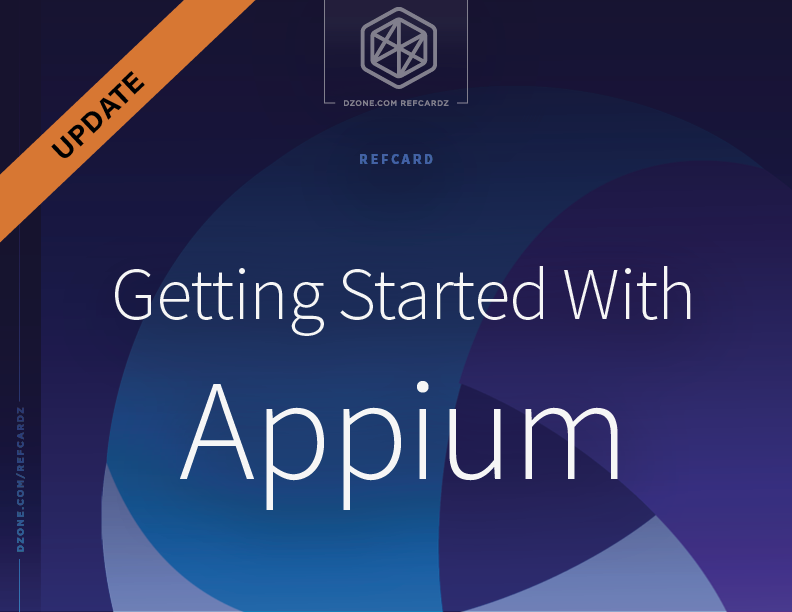What is Appium?
Appium is a free and open-source mobile automation framework used for native, hybrid, and mobile web apps. It works on iOS, Android, Mac, and Windows apps using the WebDriver protocol. WebDriver (the API to automate browsers, maintained by the Selenium project) is currently going through a W3C (World Wide Web Consortium) specification.
This is a preview of the Getting Started With Appium Refcard. To read the entire Refcard, please download the PDF from the link above.
Getting Started
In order to get up and running on your local machine, you need to download an Appium server and client bindings for your preferred programming language. There are Appium language bindings for multiple programming languages. The officially supported ones (in alphabetical order) are:
- C# (.NET)
- Java
- JavaScript (Node.js)
- Objective C
- PHP
- Python
- Robot Framework
- Ruby
Before we dive into installing all of the Appium dependencies, we are first going to look into the iOS and Android dependencies.
This is a preview of the Getting Started With Appium Refcard. To read the entire Refcard, please download the PDF from the link above.

